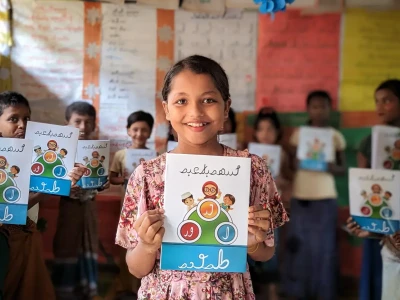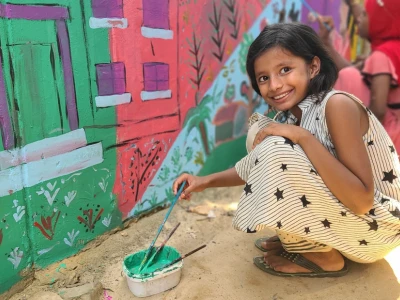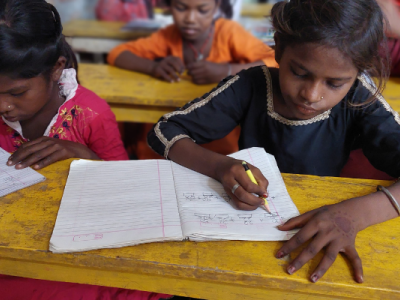We also make sure lesson times in our classrooms don’t overlap with madrassas (religious school / lessons).
We train our teachers on PSEAH (prevention of sexual exploitation, abuse and harassment) so they can help to protect students and spot the signs of abuse.
As a result, in the last six months, we have seen an increase in attendance (especially for girls) in our classrooms in Kutupalong and on Bhasan Char island, where many refugees have been relocated.
All the teachers are passionate about ensuring Rohingya girls can come to school and act as role models for the students to show what is possible with an education. They are making a huge difference, with attendance at the learning centres rising from 92% to 95% in Kutupalong in the past six months.
I was not deterred by the challenge of working with refugees, and hoped to break down barriers and earn the trust of the community in order to make a meaningful contribution and difference. I am so pleased that we are seeing that difference now, with so many of the girls thriving at the learning centres.
Student Morina says:
“I can see a lot of change in me. I am now studying in Grade 3 and wish to study to higher grades. I am confident I can do it. Through learning here, my confidence has increased a lot.”
From a personal perspective, I achieved my dream of fighting back against the pressure to marry young, and now I work in this remarkable programme, bringing education to countless Rohingya children, helping them grow in confidence.
I want to continue to challenge those attitudes with the Rohingya community, so that girls can benefit from the power of education.






